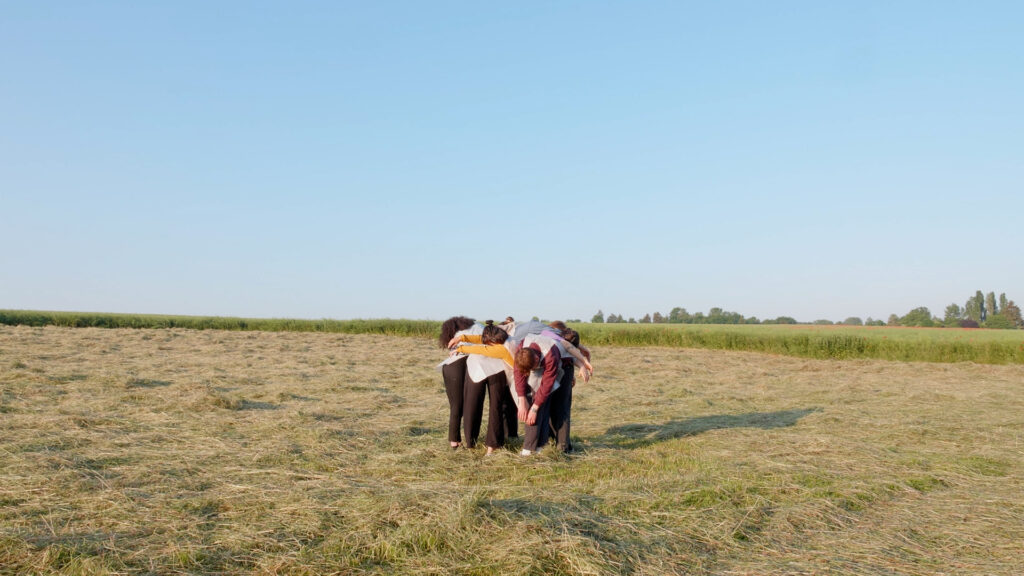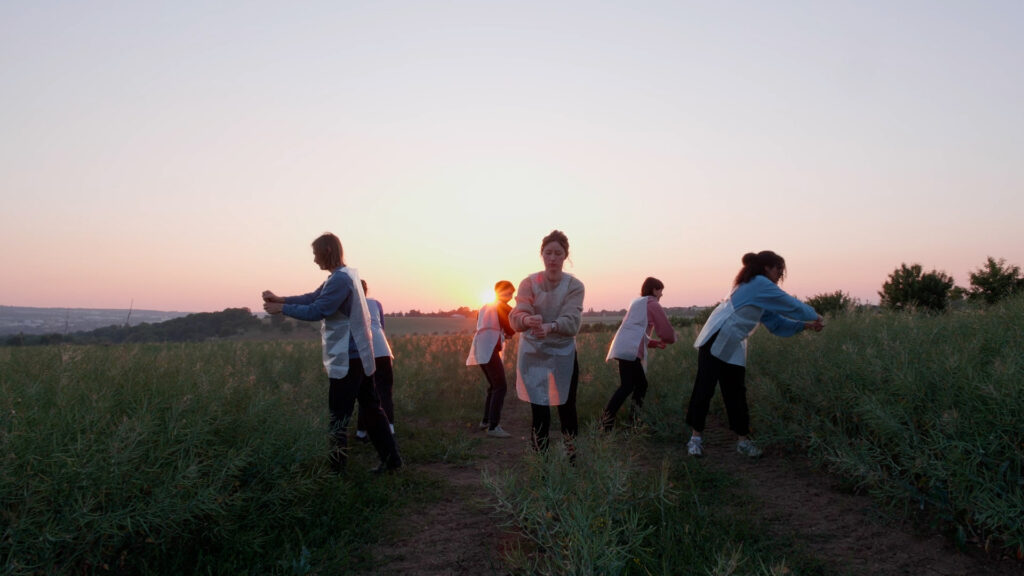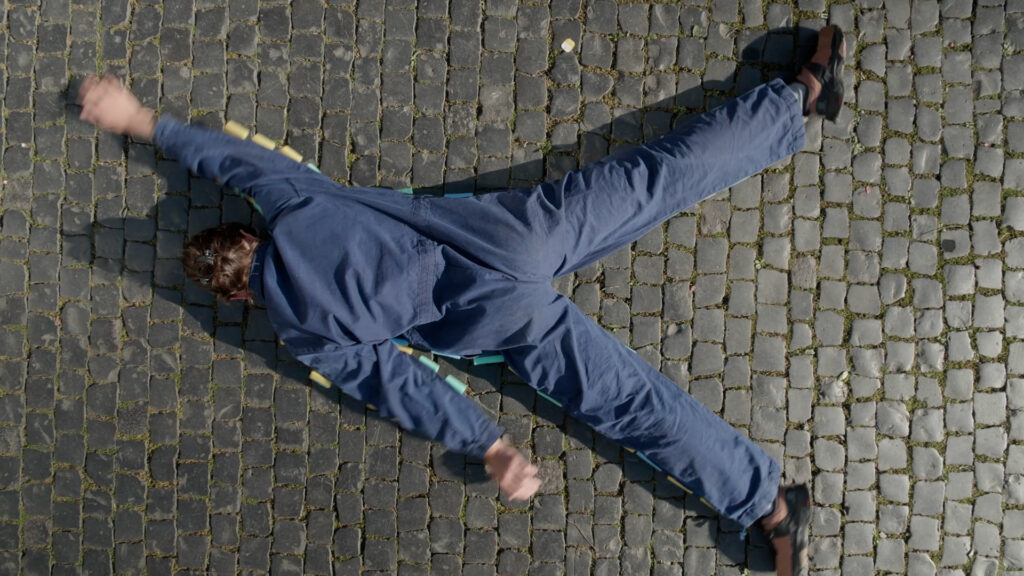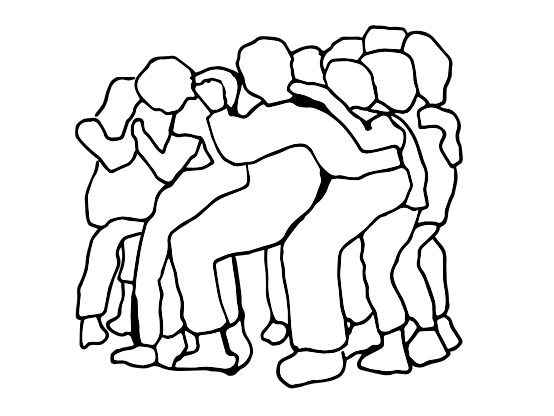
WHO CLEANS THE WORLD? About the revalorization of reproductive labor.
How would a world look if our paid jobs were reduced in hours and there was more time for us to take care of each other and our surroundings? Or a world in which there was no differentiation between paid and unpaid work, or no differentiation between productive and reproductive work? A post-racist, post-capitalist and post-imperialist, and
thus post-heteropatriarchal world? A world in which every life mattered? Where each of us took responsibility for the creation of a space that nurtures our common well-being?
A world not built on the exploitation of labor connected to sustaining life but grounded in the prioritization of this labor?
WHO CLEANS THE WORLD? ABOUT THE REVALORIZATION OF REPRODUCTIVE WORK is a participatory performance project using artistic practices to engage into a collective process of valuing the efforts carried out by cleaning, care and domestic workers and reconnecting to household care practices; moving towards a society based on sharing the responsibility of taking care of each other’s needs.
With this project the artist is reflecting on the general contribution of the individual in the taking care of, and hence the cleaning and tidying of, the surrounding spaces. What are the efforts made in Western society to engage in a process of making this world a nurturing, sustainable place? And why is reproductive labor a place of racialization, gender division, and exploitation while its purpose is so existential to our well-being and even survival? By bringing the private activity of cleaning the personal space into the public realm the artist is visualizing this issue, that is often made invisible.



In the quest for creating a society which prioritizes meeting human, but also non-human needs, the artist highlights the relevance in dealing with our relationship to household chores and valorizing this practice. In WHO IS DOING THE WASHING UP? a collective circle performance was created through several workshops. The reconnection to cleaning and household work is made by the participants first by reflecting on their personal relation to it and then by experimenting with and incorporating these tasks into movement. Moreover, the act of performing and reflecting on this as a collective intensifies the experience of giving value to reproductive work. In SONNTAGS IN 4 AKTEN, an intervention in public space performed by the artist, the repetitive, burdened and never-ending act of cleaning spaces is visualized. The overalls with the sponges and the blouse made out of kitchen textiles, make the incorporation of the hard work in this area, visible. Wearing this clothing and imitating the act of cleaning amplifies the sensation of cleaning as an act of connecting to your surroundings. It makes it possible for the performer to feel an intensified relationship of the body to the space.
The decision of taking time for experimenting and performing with these reproductive work movements can be seen as an act of resistance against the capitalist system using reproductive work as a means of exploitation, and against this kind of work not being appreciated as an important contribution to the value of Western society. Built upon the capitalist system of production and consumption, more effort seems to be given to the destruction and exploitation of living beings and the environment than to caring for and sustaining them. The sustenance of life seems to be reserved for a few, benefiting from the Western capitalist patriarchy and exercising power over the rest. Looking at the structures behind who is exercising paid and unpaid reproductive work makes major inequalities that define the workings of our society visible. The separation of production and reproduction and the development of the Western, capitalist, competitive society of productivity and consumption has pushed reproductive labor to the edge of society. It has tied mostly women, socially disadvantaged and racialized people to these jobs, providing them little reward, defining the acts of cleaning and caring through discrimination. In heterosexual relationships, women are still spending much more time on reproductive labor than men are. Mainly women of the upper class are able to afford to relieve themselves from these tasks by outsourcing them to women from lower classes and other disadvantaged groups. Hence in Europe, paid reproductive labor is mostly done by workers from Eastern Europe or the Global South, who again often have to spend a lot of time and effort taking care of reproductive work in their own homes. This vicious circle makes visible that the Western capitalist system is not able to meet the reproductive needs of everyone.
Within this project the artist aims to create artistic strategies for the practice of self- and community care, moving people to define their self-value on how they support and connect to their fellow humans rather than on their productivity within the capitalist system.


WHO CLEANS THE WORLD? ABOUT THE REVALORIZATION OF REPRODUCTIVE WORK started as Fabienne Margue’s Master’s thesis project for the MASTER OF FINE ARTS (MFA) in Public Art and PUBLIC ART AND NEW ARTISTIC STRATEGIES at the BAUHAUS UNIVERSITÄT WEIMAR.
Project advisors: Prof. Danica Dakić, Dr. Luiza Prado de O. Martins, Anna Till.
